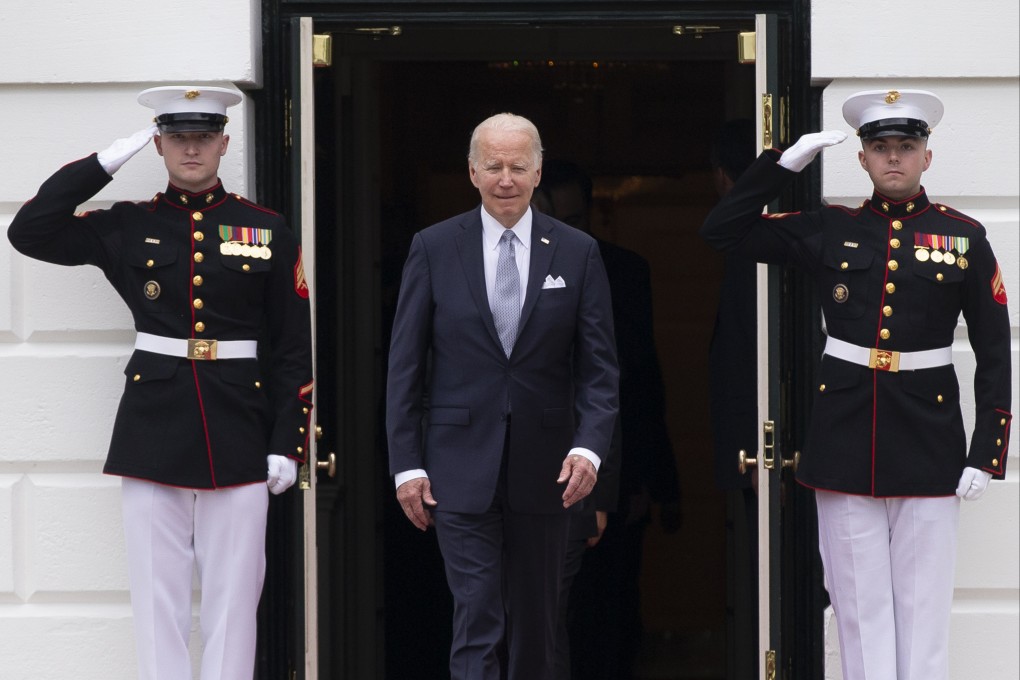Advertisement
Joe Biden to plug Indo-Pacific Strategy in Japan and South Korea, with eye on China and Russia
- The US President will seek to deepen security cooperation with both allies and encourage them to press further sanctions on Russia amid the Ukraine war
- While Seoul is not a member of the Quad, its close ties with the US and support for the Indo-Pacific Strategy could see it invited to participate in working groups, an analyst says
Reading Time:5 minutes
Why you can trust SCMP
24

On Joe Biden’s first trip to Asia as US president this week, he is expected to engage Washington’s two staunchest allies in the region more closely with its Indo-Pacific Strategy and encourage them to further step up pressure on Russia and China, analysts said.
From four days beginning on Friday, Biden will visit Seoul and Tokyo in a trip the White House says underscores US commitment to the region even as international attention is directed towards the Ukraine war.
On top of meetings with newly-inaugurated South Korean President Yoon Suk-yeol and Japanese Prime Minister Fumio Kishida, Biden and Kishida will also be attending the Quad partnership summit with India’s Prime Minister Narendra Modi and Australian leader Scott Morrison.
Advertisement
While there are concerns that New Delhi might weaken the cohesion of the Quad given its refusal to criticise Russia’s invasion of Ukraine, analysts said this would not affect cooperation in providing health and infrastructure assistance to the Indo-Pacific region.
Under the Indo-Pacific strategy, the US says it will build a free and open region, bolster security and build resilience with its allies and partners, with an eye on China as a threat.
Biden’s visit to the region comes just days after he hosted the leaders of Asean in Washington late last week.
Advertisement
Advertisement
Select Voice
Choose your listening speed
Get through articles 2x faster
1.25x
250 WPM
Slow
Average
Fast
1.25x